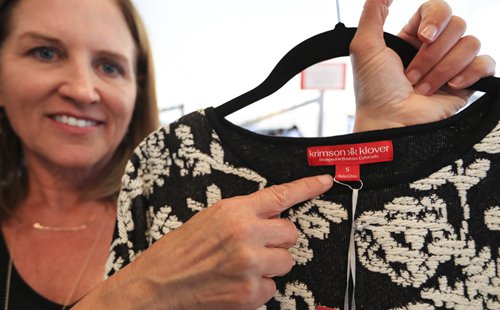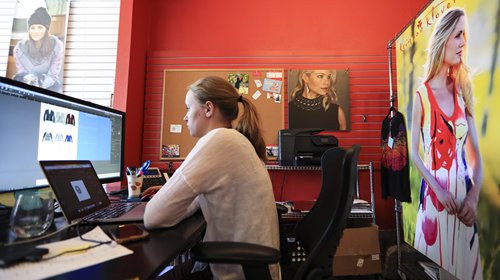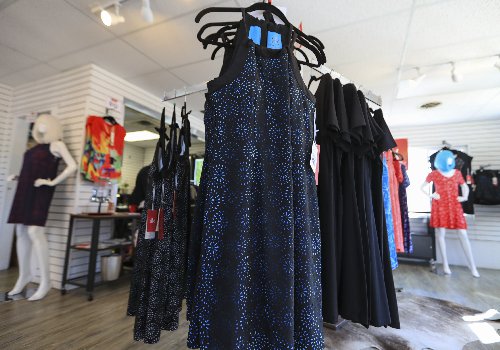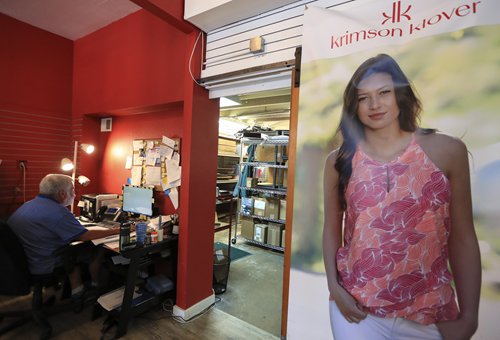"The punitive tariff payments are essentially new taxes on American businesses and consumers, forcing American companies to halt new hiring, close new product lines and absorb these unexpected costs wherever they can."
With winter approaching, US outdoor industry brands should have been filled with joy at this time of year, preparing for a big jump in holiday sales. However, it is not true for this upcoming winter.
Data from the Outdoor Industry Association (OIA), the leading trade association for the outdoor industry, showed that Washington's additional tariffs imposed on Chinese imports cost the industry 1.8 billion US dollars more than expected from September 2018 to July 2019, which hit the industry with some 7.6 million employees like a sledgehammer.
As American outdoor manufacturers and retailers are exposed to chilly economic conditions, industry forecasts amid the ongoing US-China trade friction suggest that "winter" is coming.
HUGE FINANCIAL BURDEN
Krimson Klover, a women's outdoors clothing retailer located by the Rocky Mountains foothills in Colorado State, is already losing revenue due to the trade tensions.

Krimson Klover's CEO and founder Rhonda Swenson shows a jacket made in China, in Boulder, Colorado, the United States, Sept. 12, 2019. (Photo: Xinhua)
"People will be going out of business because of this (trade row)," said Krimson Klover's CEO and founder Rhonda Swenson in a recent interview with Xinhua.
"We're in a really competitive industry ... it's a huge financial burden (and) taking the tariffs is a big hit," Swenson said at the company's headquarters in Boulder County.
As the label on its products shows, the company follows an operation pattern of "Designed in Boulder, Colorado; Made in China." About 95 percent of the clothes are manufactured by Krimson Klover's four partner factories in China, with one in Shanghai's Pudong, one near Shanghai and two in China's Southern province of Guangdong.
The company also employs more than 10 people in Boulder, plus five contract designers and some sales representatives.
"We have been working with our current factories close to twenty years," said Swenson, noting that she visited China several times a year in the last two decades.
Outdoor industry officials have said some businesses have already been hit "astronomically," and that small businesses are getting hammered the hardest by extra fees on Chinese goods.
In June, some 660 US companies, including 21 outdoor industry players, wrote a letter to US President Donald Trump to voice their concern about the escalation of the tit-for-tat tariffs.
"If tariffs are imposed, Columbia Sportswear Company along with many other manufacturers in our industry will be forced to raise prices on our products. This is a massive tax on employers and consumers, not on China," said Tim Boyle, president and CEO of Columbia Sportswear Company, an industry leader in US outdoor apparel and products, in a statement in August.
TAX ON US CONSUMERS
The outdoor recreation economy accounts for 2.2 percent of the US gross domestic product in 2016, or 412 billion dollars, according to data from the Outdoor Recreation Satellite Account released by the Bureau of Economic Analysis under the US Department of Commerce.

A designer works at Krimson Klover in Boulder, Colorado, the United States, Sept. 12, 2019. (Photo: Xinhua)
"New data compiled and analyzed by the Trade Partnership (a research and consulting firm based in Washington D.C.) includes the toll of tariffs on a variety of outdoor recreation equipment including backpacks, camp chairs, leather ski gloves, kayaks and bicycles, which are saddled with the 25 percent punitive tariffs, causing the average tariff rate on outdoor equipment to more than double compared to the previous year," the OIA said in a press release earlier this month.
"The trade war is wreaking havoc on the American outdoor industry, among many others," said Patricia Rojas-Ungar, OIA vice president of government affairs.
"The punitive tariff payments are essentially new taxes on American businesses and consumers, forcing American companies to halt new hiring, close new product lines and absorb these unexpected costs wherever they can," she noted.
In the June public hearings about the White House's proposal to put new tariffs on Chinese imports, Krimson Klover's Chief Operating Officer Gail Ross testified about the tariffs impact before the Federal Trade Commission in Washington, D.C. The company is one of the 10 small businesses that were heard, while nearly 300 larger companies also spoke about the adverse impact of the ongoing trade conflict.

Photo taken on Sept. 12, 2019 shows dresses made in China at Krimson Klover in Boulder, Colorado, the United States. (Photo: Xinhua)
"We hope for a resolution, but once taxes are in place, they do not just go away ... We are expecting the worst in the long run," Ross told Xinhua.
Since the tariff hikes started last summer, Ross and Swenson have moved a small clothing line to Vietnam and looked into alternative manufacturers, fearing the worst.
"NOBODY CAN PRODUCE LIKE CHINA"
"We talked to Romania, to Portugal ... but nobody can produce like China," Ross said, noting that the Chinese are great business partners.
"When the tariffs hit, our factories in China were forced to meet difficult deadlines to produce some of our clothing; if not for these established relationships, it would not have happened," Ross said.
"In South America, when they say it will ship Tuesday that means Thursday, but in China, when they tell you when it will ship, they're always on time," Swenson added.
The Chinese quality, they said, is also unparalleled.
"Look at the weave in this sweater," Swenson told Xinhua, pointing at a tightly-knit black-and-white patterned sweatshirt displayed in the company's show room. "The equipment to make this quality clothing just doesn't exist in the United States."
"Let me give you an example ... we have a category of product, that we have some volume in, regardless of what the duty is, it's high, let's bring this back to Denver, let's bring this back to the states," said Ross, echoing the Trump administration's call to bring manufacturing back to America.
"So we called a bunch of factories in Denver, we sent them samples, and they called us back a couple of weeks later and said do you want the good news or the bad news?" She continued.
"The good news is they have the machinery and they have the talent. The bad news is what I can get out in China in four months would take them a year. So that was off the table," Ross said.
She said that other possible manufacturers out of America, like those in Vietnam, might take years to catch up with their Chinese rivals in products quality.

A designer works at Krimson Klover in Boulder, Colorado, the United States, Sept. 12, 2019. (Photo: Xinhua)
With the ski season arriving soon, Krimson Klover would love to expand their sales into the vast Chinese market, but like many American businesses, they remain in a "holding pattern," as trade negotiations continue.
"It's the uncertainty of the tariff hikes that has caused problems," said Swenson, citing economists as saying that the on-again, off-again, percentage-changing taxes have wreaked havoc in markets.
"We are disappointed with the president's action to escalate this trade war," said Sports and Fitness Industry Association President and CEO Tom Cove in a statement in August.
Cove also said he hoped the two nations would continue negotiations in a positive way that would not harm American consumers and corporations.
